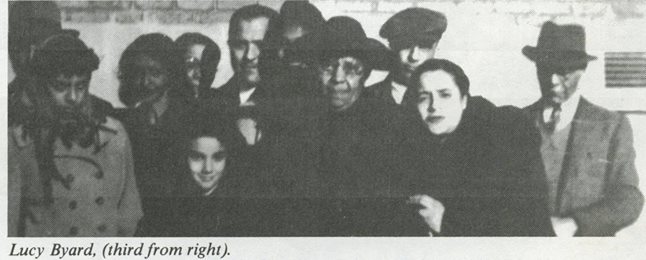The Story of Lucille Lewis Byard
I failed to post the following story on September 22, when Benjamin Baker of the Ellen White Estate shared it with me. I included a minimalist telling of this story in a writing project earlier this year. Adventist Archives - - -
On this day (September 22) in 1877, Lucille Lewis Byard was born in Petersburg, Virginia. She accepted the Adventist message in 1902 in New York City, and was an active member in the Jamaica Long Island Church for the rest of her life, serving as a Bible worker and church musician, renowned for her gracious hospitality and vegetarian cooking.
In October 1943 while visiting the Washington, D.C., area, Byard contracted a severe case of pneumonia. She checked into the Washington Sanitarium and Hospital, and since she had a very light complexion, it was assumed she was Caucasian. However, after she was admitted, hospital staff discovered from a patient form Byard had filled out that she was African American. Despite her pleading, Byard was discharged from the hospital. Her family took her to the Freedman’s Hospital (now Howard University Hospital) across town, but she died shortly after on October 20, 1943.
“The Byard Incident,” as it became known, sparked a grassroots protest among black Adventists, who saw the event as a reflection of the unfortunate state of race relations in the church. Several groups were formed, demanding church leaders to act to redress the situation. It was pointed out that African Americans robustly supported the Adventist church with tithes and offerings, yet were unable to be treated in church hospitals, attend certain churches and church schools, and were regularly and systematically discriminated against. Through a series of events, regional (black) conferences were organized in 1945-1946. Byard’s death was a key catalyst of their establishment.


